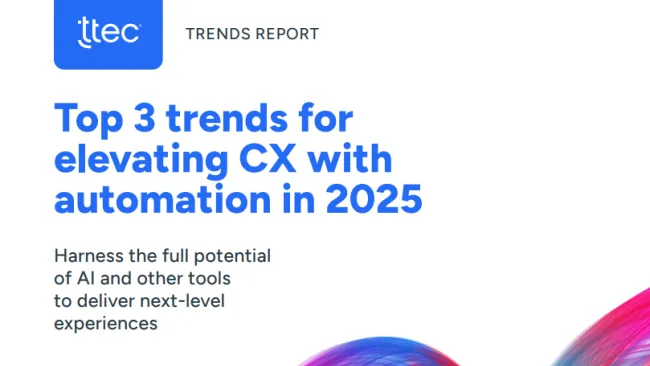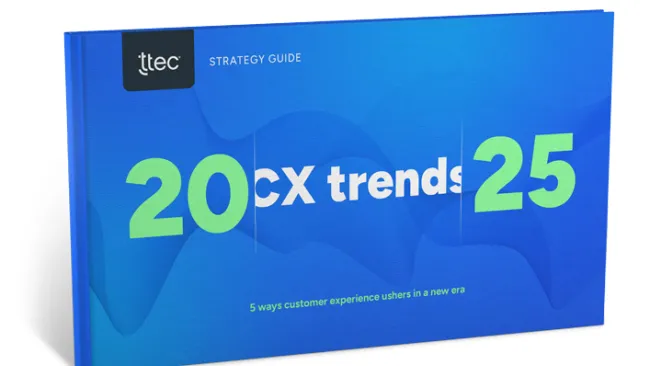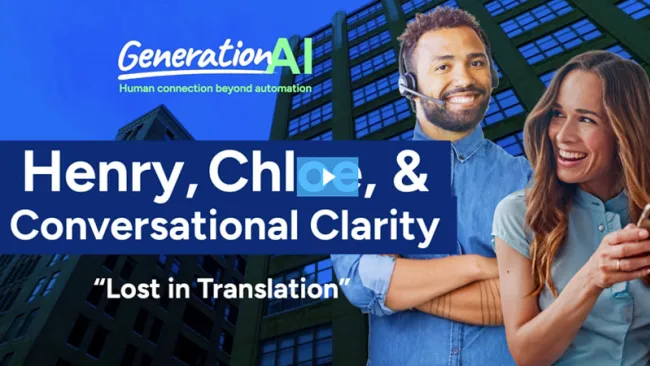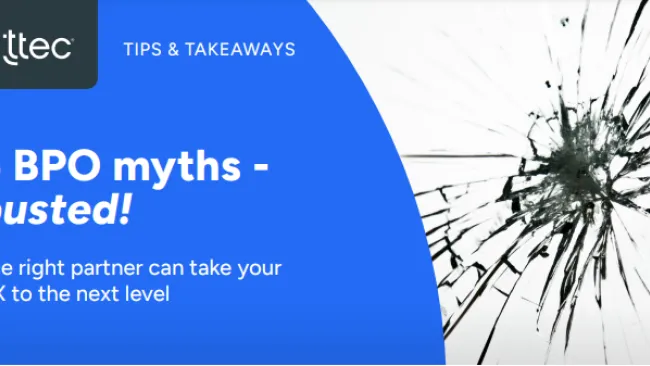There’s a common misconception around the term, “contact center outsourcing.” Many business leaders assume it is mainly a cost-cutting measure. What they don’t realise is that outsourcing is more than just a consolidation of functions for reducing costs.
If done right, contact center outsourcing is also an opportunity to gain specialized knowledge and resources, as well as quick access to a flexible workforce and innovation ideas. It’s the difference between checking items off a list and working with a partner that is invested in your company’s success.
At the same time, not every organization needs a contact center partner. To make the decision process easier, ask yourself these questions first:
1. Can you afford to leave money on the table?
Contact center agents do more than field customer queries—they can also generate savings. For instance, an airline company turned to TTEC for help enabling its contact center to provide actionable insights. We proposed implementing a speech analytics tool that was able to provide a view of call trends, volume, AHT (Talk Time + Non-Talk Time), customer sentiment scores, and driver correlations that can be filtered per enterprise, manager, team lead, and agent level.
As a result, our associates were able to proactively identify opportunities to improve the customer experience on behalf of the client. For instance, the tool revealed that more than 57K inbound calls and chats were from members seeking assistance in retrieving their frequent flyer number (FFN).
In addition to looking up the number for them, associates made it a point to inform members that they can retrieve their FFN, reset their PIN, and get access to other profile information through the airline’s online portal or its app by using their registered email address or mobile number. This insight ultimately led to an 87 percent reduction in call volume and $128K in annual cost savings, among other actionable insights.
2. Are your customers willing to absorb additional costs?
The costs of doing business are increasing. In the U.S., the federal minimum wage is $7.25 per hour, but some states have opted to increase it to more than $12.50 (e.g., Washington D.C.), while other states recently enacted laws for even more significant increases.
Businesses can pass those additional costs to customers, offset the increased costs with less labour (and reduce productivity), or reduce costs with a CX partner. Outsourcing the contact center to a CX partner can reduce the total cost to service which includes the cost of recruitment, training, performance management, rewards, incentives, innovation, and infrastructural development.
What’s more, research has shown that improving customer experience directly correlates to higher revenue growth and lower costs. A McKinsey study found that, on average, brands that improve CX increase revenue 10 to 15 percent and reduce costs 15 to 20 percent. In other words, the cost of working with a customer experience outsourcing partner can be offset by growth in revenue.
3. Do you have a contact center that’s future-ready?
If there’s one thing companies have learned from the COVID-19 pandemic, it’s that inbound volume can rapidly spike and customers expect fast and convenient support. However, traditional call centers were not designed to provide nimble support—it’s very much the opposite. Traditional call centers are highly siloed and scripted environments where agents react to customer needs instead of anticipating and empathizing with customers.
But if you have a contact center where associates work cross-functionally to support customers across multiple channels, have access to the right information at the right time, and can scale up or down as needed, then there’s no need to work with a partner.
4. Do your customers only ask the same questions over and over again?
In certain cases, automation can replace humans (what usually is known as RPA or unattended automation). If your customers only ask the same questions repeatedly, an AI-powered chatbot can support most of their needs. Or, if your customers are satisfied with the self-service options and rarely reach out, there’s no need to find out how to strengthen customer relationships with a hybrid approach to AI and the human touch to drive complex support resolution.
The main takeaway is that it’s possible to just rely on in-house resources, but it can be expensive and time-consuming. If you find yourself answering "no" to any of the questions above, a customer experience outsourcing partner may be right for you.
Learn more about how working with a contact center outsource partner provides numerous cost and innovation benefits at www.ttec.com/customer-care-services or contact us.

















